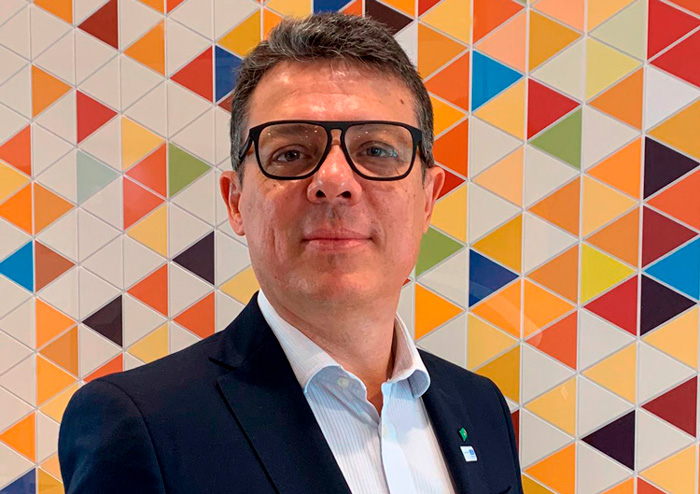The potential of Agave plant for industrialization and sustainability in the semi-arid region of Bahia
A new project to manufacture biofuels produced by exploiting Agave - a plant from which sisal fibers used as raw material for handicrafts are made by hand - is expected to be the main agent for the industry transformation in the Brazilian Northeast region in the coming years.
Agave is a type of succulent typical of semi-arid regions such as Mexico, where it is used for the production of tequila. In the interior of Bahia, where it is also cultivated, it is widely used for the production of fibers to create handicrafts. Currently, Brazil is the largest producer of sisal fiber in the world, with about 80 thousand tons per year.
However, only 5% of the plant's biomass fibers are used in Bahia for the production of sisal fibers. The other 95% are discarded. Researchers at Unicamp discovered that this residue is very rich in raw material for biofuel production. The energy potential of agave biomass is comparable to that of sugarcane, with the advantage of requiring 80% less irrigation and fertilizer use.
It is estimated that in one hectare of agave it is possible to produce 7,400 liters of first- and second-generation ethanol per year. In five years, the agave crop could yield, per hectare, the production of 880 tons of biomass, storing 617 tons of water and capturing 385 tons of carbon.
To build a prosperous and sustainable future in Brazil's driest region, the BRAVE Program (Brazilian Agave Development or Development of Agave in Brazil), developed by Shell Brasil in conjunction with Unicamp and SENAI CIMATEC, aims to use the full potential of the plant as a source of biomass for the production of ethanol, biogas and other derivatives. The BRAVE Program designed the dynamics of a biorefinery that will use everything that agave offers, from the pine cone to the leaves.
The first stage of the program began with research at Unicamp, dedicated to the biological aspects of agave, such as the characterization of its varieties, sequencing and genetic improvement, development of seedlings at low cost, analysis of the energy potential, fermentation process and analysis of the plant's life cycle.
The second stage, launched on April 13, was focused on the creation of mechanization processes for planting and harvesting and improvement of agave cultivation, with studies on the application of agricultural techniques and crop management (BRAVE Mec); and the industrial production of biofuels, from the optimization of first and second generation bioethanol production to the installation of pilot plants for testing and process validation (BRAVE Ind).
BRAVE Mec will generate technological solutions for processes that today are executed manually or using low-tech implements. In the case of planting, the project will use equipment that already exists commercially and adapt it to work with Agave seedlings. To harvest the plant, specific equipment will be developed, which will be tested in the experimental field.
In parallel, BRAVE plans to develop the Agave processing route to obtain ethanol, biogas, and other co-products. The purpose is to use 100% of the plant's potential, aiming to create technologies that will boost the implementation of a new business chain. The research is being conducted in partnership with SENAI CIMATEC Sertão, SENAI CIMATEC's new campus designed to bring technology and innovation in industrial production to exploit the potential of Bahia's semi-arid region. The intention is to create technical, economic, social, and environmental conditions that strengthen the sector, with job and income generation for the local communities, and environmental sustainability.
With an estimated term of five years and an investment of approximately R$100 million, the BRAVE Program is funded by Shell Brasil, using resources from the Research, Development and Innovation clause of the National Agency of Petroleum, Natural Gas and Biofuels (ANP) and EMBRAPII, for biological, agricultural and industrial research.
The full implementation of the program may enable a new industrialization for the Northeast of the country, in which it will be possible to reconcile economic development with environmental sustainability. By using a plant that adapts well to the climate and soil of the Northeastern sertão and that demands less water and fertilizers than other crops, BRAVE contributes to the preservation of the region's natural resources.
At a time when the climate crisis is an increasingly worrisome reality, the BRAVE program's model, and SENAI CIMATEC Sertão is an example of how innovative and transformation solutions can be found to address environmental and social challenges. By investing in biofuel production and providing industrial and economic development with national impact, Brazil confirms its role as a biofuel producer committed to the transition to a low-carbon economy, contributing to a fairer and more prosperous future.
Andre Oliveira is Executive Manager of Oil & Gas and Mining at SENAI CIMATEC. Mechanical Engineer, with Master in Energy and PhD in Computational Modeling in the area of Sustainability, for over 30 years has worked in Strategy, Development and
Business Management, Entrepreneurship & Innovation, HSE, PD&I projects,
Technological Services, in the areas of Energy, Oil & Gas and Sustainability.

